Calista Bergerson is twenty years old, a full-time college student who also works twenty-five hours a week. If that weren’t enough, she’s also a member of the Army National Guard under a “six-by-two contract” (actively in the Guard and going to drills for six years; then, for an additional two years, she will still be in the Guard but only activated if there is a natural disaster or war).
When the semester started, and I saw her name on the roster for my advanced composition class, all I thought was “Ah, a Greek name straight from the myths.” However, as the weeks ticked by and I learned more about her, I began to view Calista with respect. Not only was her work in class always excellent and submitted early, she also, I gradually realized, was handling a whole lot beyond her college classes.
A timeline of Calista’s last few months:
The semester began January 11th. On that day, Calista emailed to let me know her unit had been put on active duty orders starting January 17th. The “duty” in question entailed flying to Washington DC for the Presidential Inauguration.
During her time in DC, Calista had no internet or time to do schoolwork. She returned to Duluth on January 25th. I heard from her that day and began receiving her missing work by early afternoon.
On February 3rd, she emailed again, this time to say she would be gone from February 16-March 2nd for annual training. Fortunately, they would be given time each day to complete schoolwork.
On February 17th, Calista messaged to say she’d been sent home from annual training because she’d tested positive for Covid.
On February 25th, she emailed to say she’d been notified she had to return to drill; she would be done until March 6th.
On April 8th, Calista let me know she’d been activated to go to the Twin Cities beginning April 14th. The George Floyd trial and verdict were expected to be explosive; Minneapolis police had asked for reinforcements on the ground.
On April 9th, she emailed to say her activation date had been pushed. She would be leaving the next day to the Twin Cities for an undetermined length of time.
On April 18th, Calista messaged to apologize for not doing her classwork, explaining, “I have not done much for class because I have been very busy due to the rioting and recent shootings.”
On April 28th, she messaged to say she’d gotten home the night before and wanted to be sure she was correct in her understanding of the work she needed to make up. As we went back and forth in our messages, I wanted to take a moment to acknowledge all that this semester had asked of her:
“I was thinking that, if you are one who ever does personal writing, you really should write about this semester. It’s like you, one individual, have been living history — what with being deployed for the Inauguration, then getting Covid, then being deployed for the Chauvin verdict. What you’ve been through is the story of the U.S. in the last few months.
“Or, if you aren’t one for writing unless it’s required for a class ?, I would love to send you a few questions, a kind of interview, if you will, about the last few months.”
Always a champ, Calista wrote back: “This year has been quite eventful for me so I would be happy to answer any questions that you may have for your blog. I will of course have to catch up on some homework for my classes first though.”
A few days later, I sent her a list of things I’ve been curious about. Within hours, she’d sent her responses, adding:
“I actually really like answering questions people have about everything I have gone through. I sometimes brush off the fact that I have been in scary situations and events or totally separate my situations from my civilian life, so describing them to other people helps me remember that this is real, and not everyone hears and sees everything I have.”
Why did you join the National Guard?
I joined the National Guard to help pay for college. I never thought the National Guard was ever used, so I thought I’d get school paid for and fly through school. This is obviously not true because not everyone is granted school benefits and it is actually really hard to tap into it. I didn’t get the benefits where the Army pays straight to the school. I got the benefits called State Tuition Reimbursement, but they only refund you for part of what you’ve paid. I still have to pay the full amount and then they decide how much they want to pay me back.
To join the National Guard, you have to first pass the fitness tests, and then you have to go through a series of complicated and confusing websites that changes all the time. Now that I have been in for a bit, being in the National Guard has now been a big source of my pride. I take pride in the fact that I feel like I am a part of something bigger than myself and can do something for others.
You were deployed to Washington DC to serve during the Inauguration. How did you feel about that? What exactly did you do during your deployment? Do you have any strong or vivid memories of certain moments of that deployment? Like, were there any tense moments? Put another way, what do you think you’ll remember about that deployment in, say, twenty years?
Technically, Washington D.C. was not a deployment. It was considered State Active Duty which is a bit different. I was a bit nervous about the activation because of everything you see on TV and just the fact that I could possibly be in a life or death situation. I have very strong political opinions, so it can be hard not to argue or try and talk to people. I want to post on social media and write about everything, but we are not allowed to show any political affiliation.
During this active duty, our main mission was to support the local authorities through crowd management, traffic control, and establish security while ensuring people are able to peacefully and safely protest. I was staged at Meridian Hill Park, and we were lucky where nothing really happened while we were there. There was stuff happening around the White House that we were hearing about, but we were only being yelled at, stared at, and videotaped.
I really believed we made a difference by being there because when people see the military they tend to be on their best behavior. Luckily, it was pretty uneventful every day. The thing I will remember most will be the view and statues there were to look at. It was very pretty and the weather was nice. I loved the lookout at the park where you could see the Washington Monument in the background. There isn’t must to say about what I saw because we stayed at the park every day and just walked laps until we were told to come back.
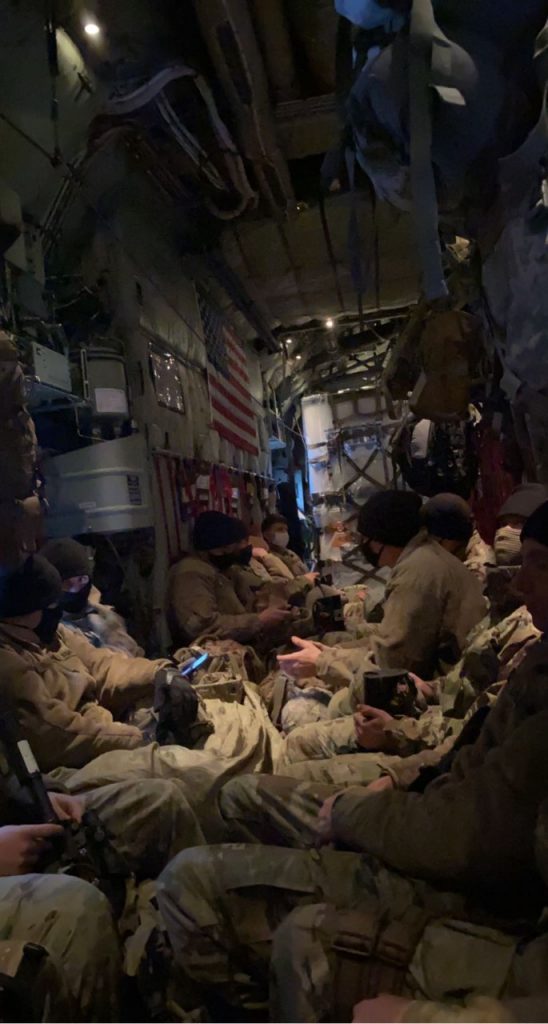
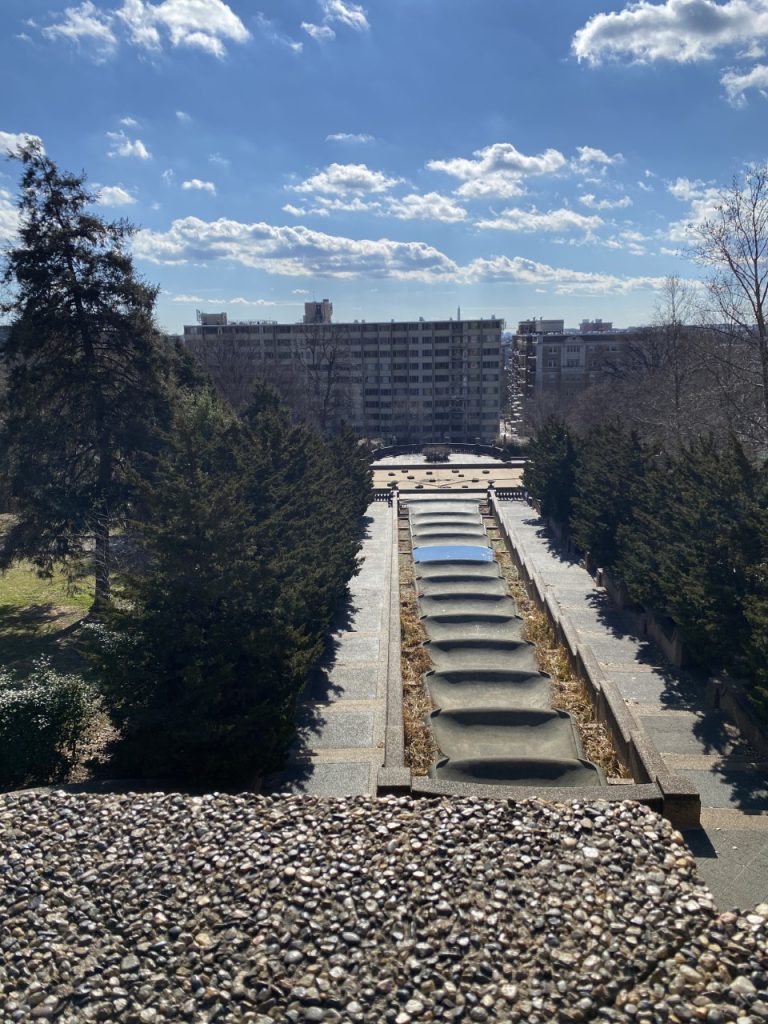
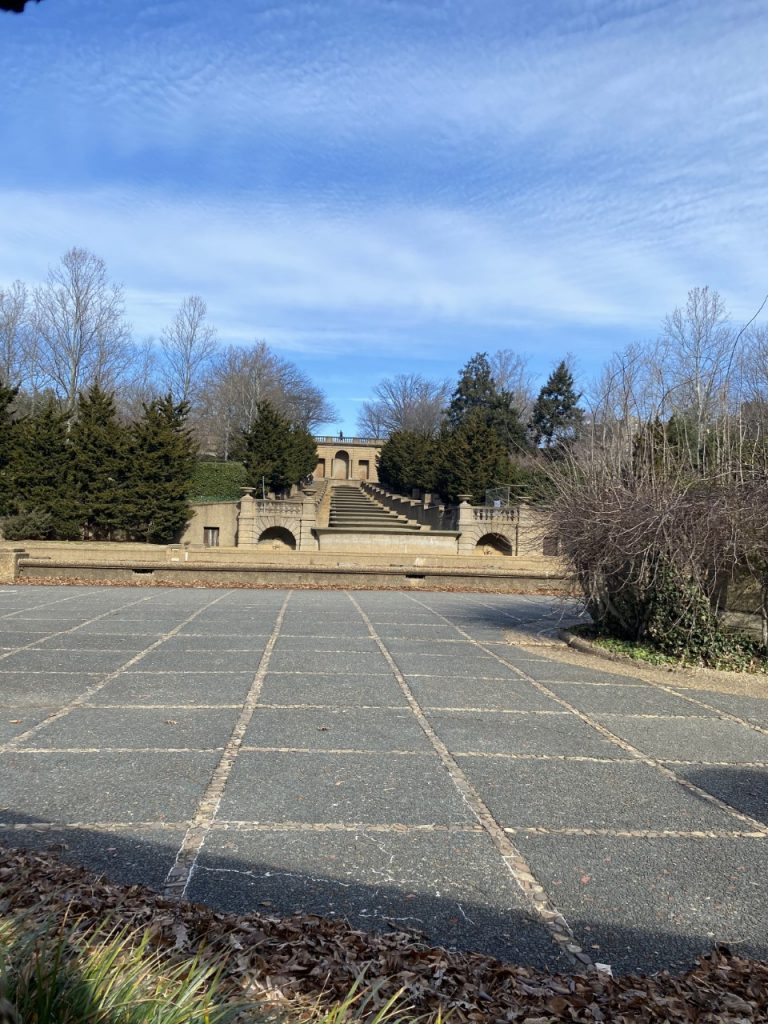
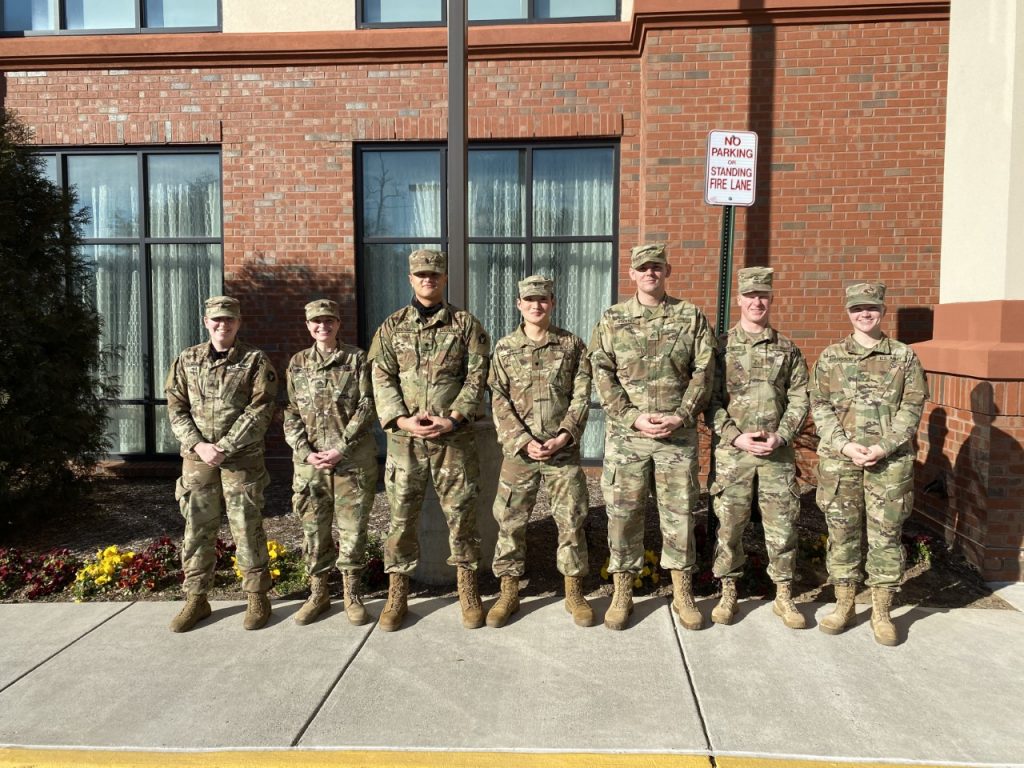
A few weeks after returning from DC, you got Covid, right? Was that related at all to the DC deployment? What was your experience with Covid like?
Shortly after coming back, I got COVID. It did not have to do with Washington D.C. I was actually exposed the week before twice by positive cases. One was while I was at work and the other was while I was at my boyfriend’s for dinner. My boyfriend’s dad was making dinner and then ended up not feeling good a couple of days later and got tested and was found positive. I also work in the emergency room, so I ended up being within six feet for longer than 15 minutes in the same room as a lady who ended up positive. I am not sure which event I got it from, but both were significant exposures.
COVID was not very fun. The first couple of days of having it, I only had headaches and felt very dizzy. I would turn my head and my brain felt like it was two steps behind trying to catch up. I took allergy medication because that what I thought it was. Then I would get out of breath very fast. I would walk downstairs with a basket of laundry and be so out of breath (more than usual haha).
After about 5 days in, that is when I lost my sense of taste and smell. I poured myself a bowl of delicious fruity pebbles and took my first bite and it tasted like soggy cardboard. After taking a couple more bites and testing my palate on pickles, salt and vinegar chips, and my favorite jalapeno Cheetos. I didn’t start tasting and smelling until the last couple of days of my quarantine. My quarantine consisted of making elaborate food dishes and being extremely bored out of my mind. I never craved any foods so my snacking was significantly reduced. I had very little appetite and went days with only eating one small meal a day. Those days were the worst because I love eating and baking food, so it was very depressing when everything tasted like nothing. But don’t worry because my taste and smell came back the last couple of days of my quarantine so I was able to happily snack.
You also were deployed to the Twin Cities at the request of police departments there for support during the days before and after the ending of the Derek Chauvin trial. How did you feel about that deployment? What exactly did you do during your time there? Do you have any strong or vivid memories of certain moments of that deployment? I know from your pictures that the window of your vehicle was shot out, so that would be a memorable event/moment, right? Any other memorable moments? What do you think you’ll remember about that deployment in, say, twenty years?
I was more nervous about this activation than the other two I have been in. I knew that I would be going down there, but it still feels surreal until you get down there. The rioters and looters were more organized in the scariest of ways. I tried to turn my mind off when I went down there because it was very depressing. It was hard being forced away without given any end date to look forward to. I feel like we were needed down there, so looking back I am glad I was there to help protect people and make people feel safe.
For the first night I was there, we were helping the firetrucks to each of their calls because people were blocking the roads. The the rest of the nights we were aiding the police department with traffic control and crowd management. The most memorable memory I have was when my vehicle was part of the front line blockade, and the rioters were shooting fireworks right under my vehicle. I get so nervous in these types of event because since I am the only medic that is responsible for a team of 10. I always imagine a mass casualty situation, and I am the one responsible for all their lives, and I could make a simple wrong mistake and end up killing everyone. I always scare myself thinking about these types of situations.
I will probably always remember the names I have been called and the things that have been screamed at me. I will remember the faces of the people who were launching bricks and throwing rocks at us. I think I will always remember each time I went to Minneapolis and the people I talked to.
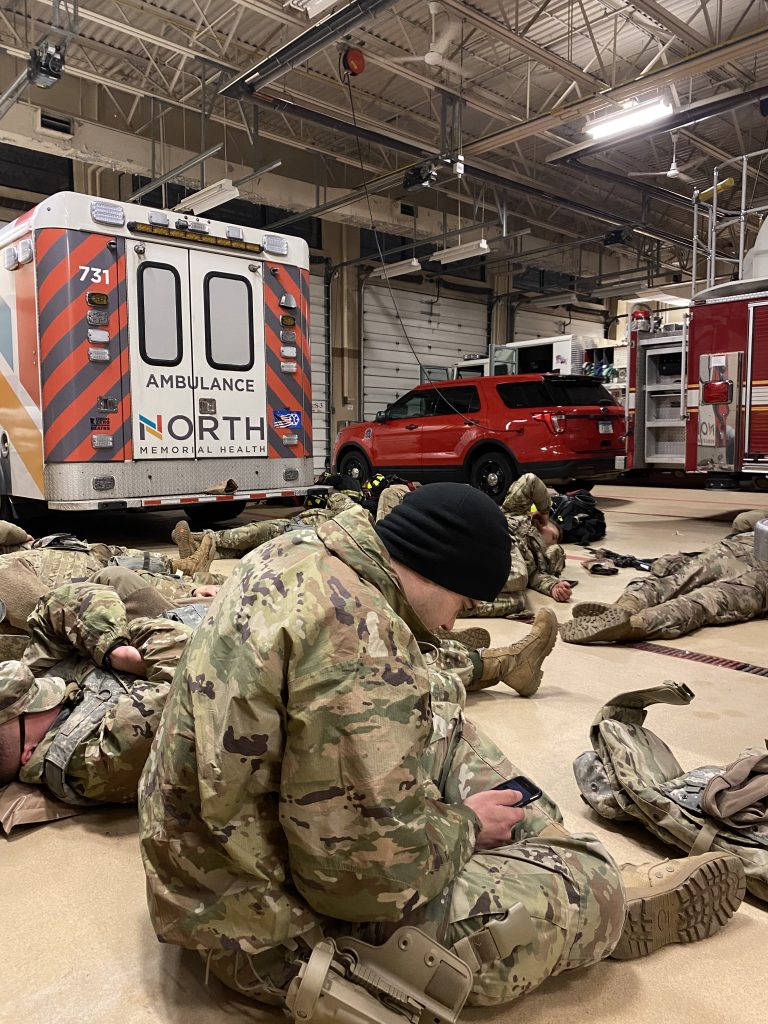
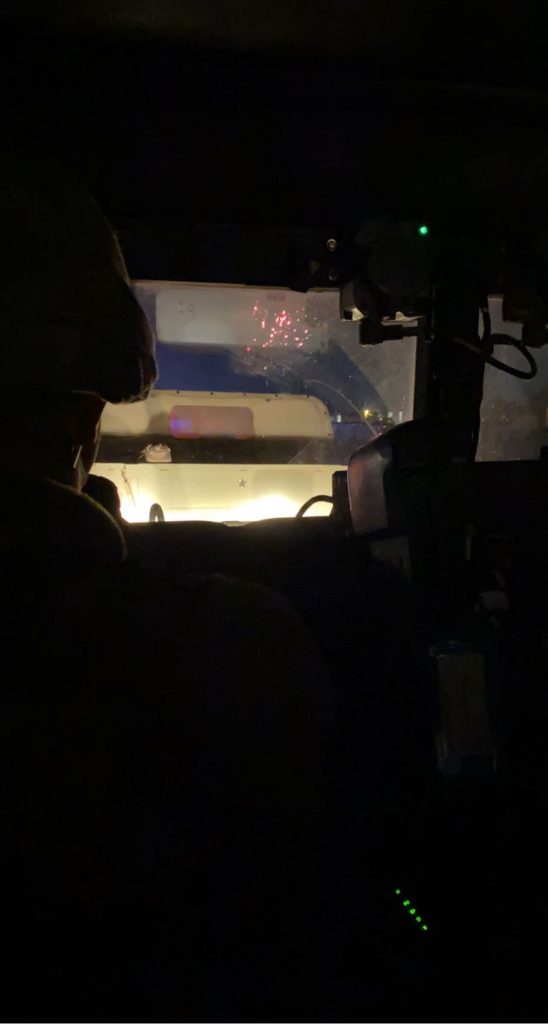
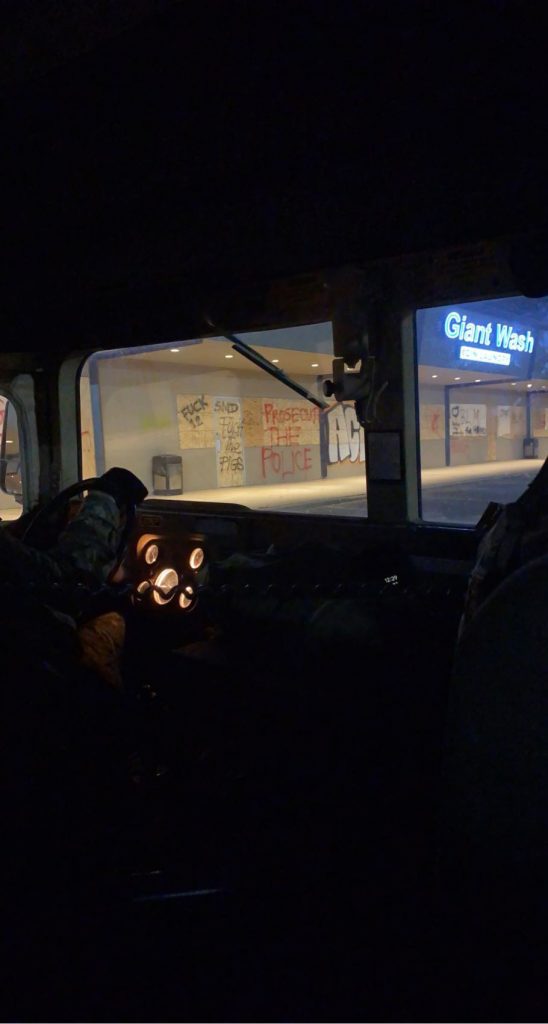
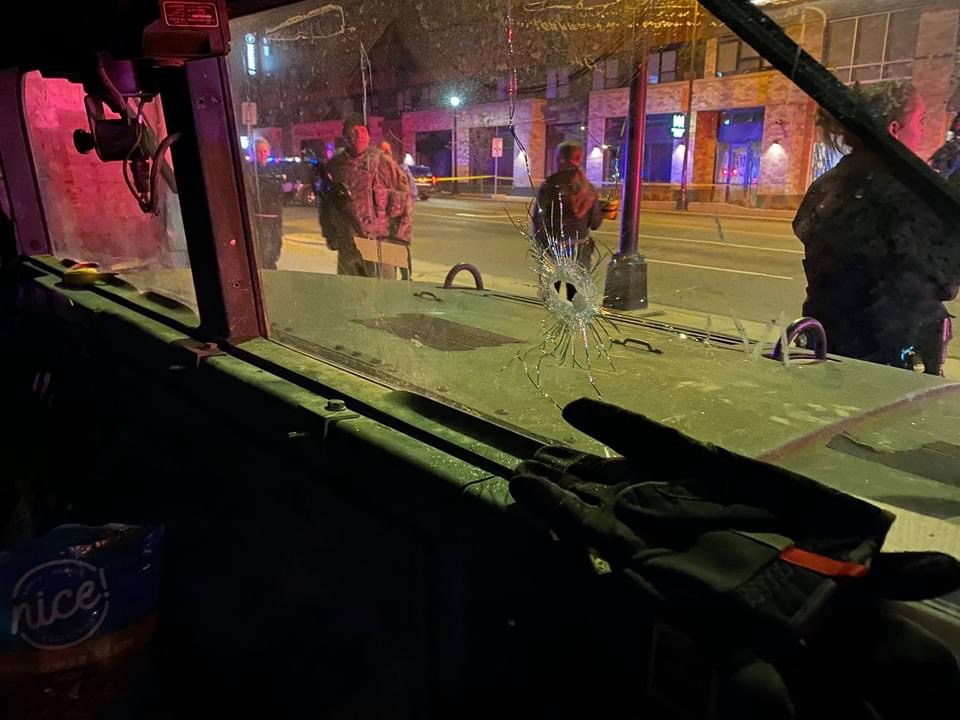
Do you ever find that the work you’re asked to do in the Guard is at odds with your personal values, and if so, how do you reconcile the two?
The Guard has never asked me to do anything that does not go along with my personal values. I have seen things that have made me uncomfortable, but they weren’t out of my personal values. We’ve had to point our weapons at people which definitely made me uncomfortable, but we had to because they were charging a vehicle right at us so we were protecting ourselves. I try not to think and just always be aware and listen to orders given to me. I have never been asked to do something that I felt didn’t need to be done.
After Calista sent her responses to my questions, we had a bit more back and forth, during which I realized, once again, how important it is to listen to other people’s stories — all the better if their lives differ dramatically from our own. Too often, our thinking is shaped by the media. Yet it’s words straight out of someone’s brain that anchor us in empathy:
“I really hate how we get portrayed so often as the ‘bad guy’ and I wish people would realize that we are one of them too and really don’t want to be there as much as they don’t want us there.
“The people throwing bricks and bleach bombs are throwing it at the uniform and don’t realize that I am just a scared person being told what to do. I have no say in what we do or how to act. I just listen to orders. The ones throwing things and saying things aren’t personally saying it to me, but I will remember everything, and it all can be mentally exhausting.”
Thanks to Calista, whenever I see a uniform now, I have a new lens that I can click into place. This focused, diligent young woman is about the same age as my own daughter. She’s in the uniform because she wanted help paying for college, but along the way she’s become a participant in historical events.
And all she wants, even in the middle of chaos, is for everyone to be okay.

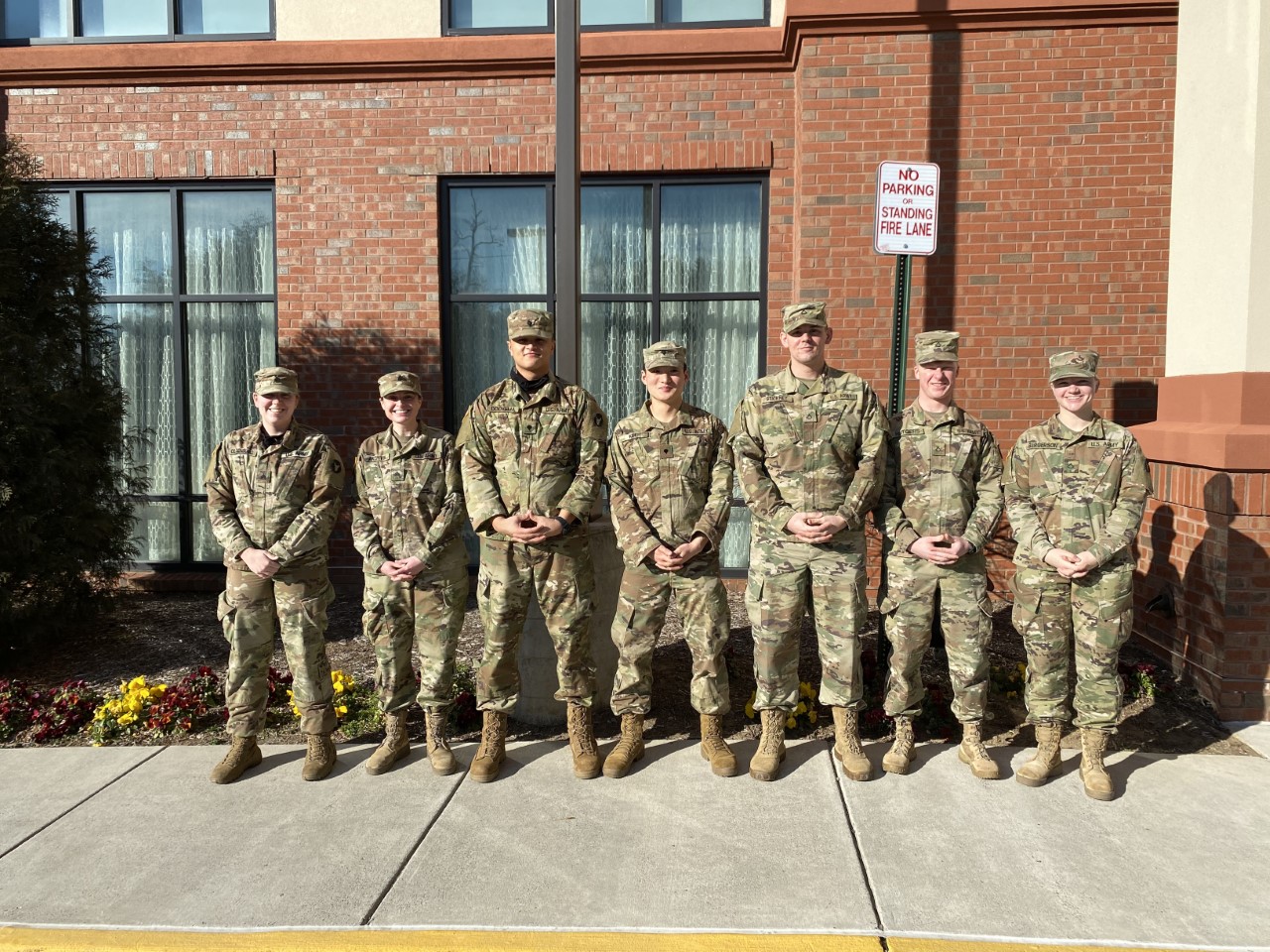
Leave a Reply to Melissa Cancel reply